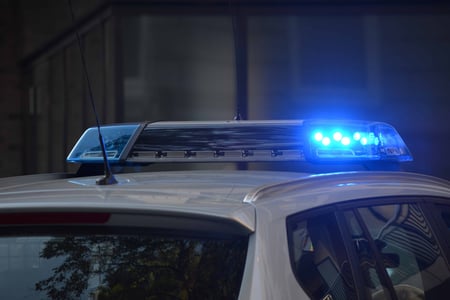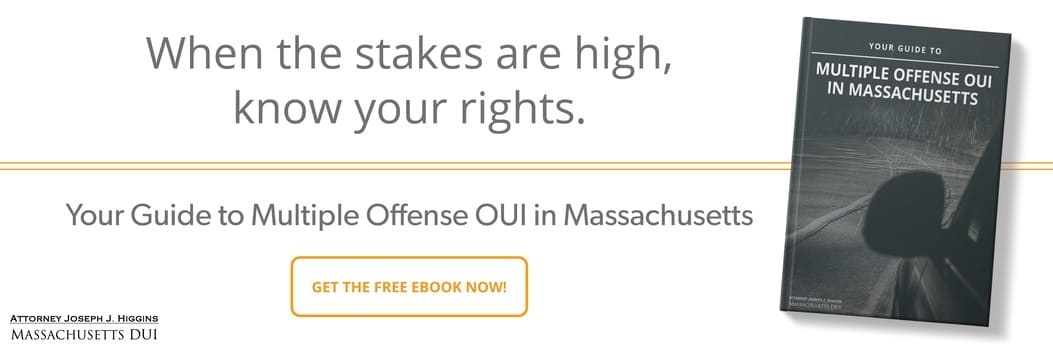First and second-offense DUIs are misdemeanors in the state of Massachusetts. Third offenses and any subsequent offenses are considered a felony DUI. However, there are some exceptions to these rules. First and second offense DUIs can become felony offenses if they involve these scenarios.

- Serious Bodily Injury – If a driver receives a DUI charge after causing serious bodily injury to another individual, their charge is “OUI Serious Bodily Injury,” which is a felony regardless of whether it’s a first or second DUI offense. “Serious Bodily Injury” is defined as the following:
- Causing loss of limb or substantial impairment for a considerable period of time
- Causing total disability
- Creates a risk of death
This charge carries a mandatory minimum jail sentence of 6 months. It also gives the potential for a prison term of up to 10 years.
There is a possibility to be charged with DUI serious bodily injury as a misdemeanor, but it is rare.
- Death – if a driver receives a DUI charge after causing the death of another individual, that charge is considered a felony.
Operating Under the Influence Causing Death, or OUI Manslaughter, is one of the most serious felony DUI offenses in Massachusetts. The minimum mandatory sentence for this offense is 5 years in prison and a 15-year loss of one’s license. But this charge could carry up to 25 years in prison, a $25,000 fine, and the lifetime loss of one’s license.
Third offense felony DUI carries the following penalties in Massachusetts:
- At least 150 days in jail
- A fine between $1,000 and $15,000
- A loss of your driver’s license for 8 years
Felony DUI Defense
If you have been charged with any DUI offense, you should seek legal assistance immediately. To be convicted of DUI, the prosecution must prove that you (a) were operating a motor vehicle, (b) that you were under the influence or intoxicated, and (c) that you were operating a vehicle on a public way. In order for your first or second offense charge to be considered a felony, the prosecution must also prove the following:
- That you were driving in negligent fashion
- That you undoubtedly caused the death or injury of another person
You may have viable defenses to your charges that you are not yet aware of. Most felony DUI cases are extremely complex. If the government cannot prove either of these elements beyond a reasonable doubt, the law says that you must be found Not Guilty. If you have been charged or believe you will be charged with a felony DUI offense, contact a lawyer as soon as possible.
Felonies, Misdemeanors, and Civil Infractions in Massachusetts
In Massachusetts, felonies, misdemeanors, and civil infractions are generally categorized by the seriousness of the offense and the level of punishment imposed upon perpetrators. They can be defined as follows:
- Civil infractions: These types of minor violations are not considered criminal. Traffic violations like speeding and failing to signal are considered civil infractions. They require no jail time.
- Misdemeanors: These crimes are not punishable by confinement in State prison but could result in jail time and probation. Examples include disorderly conduct as well as first and second DUI offenses.
- Felonies: Felonies are any crime punishable by confinement in State prison, although not all felony charges result in imprisonment. Examples include arson, murder, rape, and third and subsequent offense DUIs.


